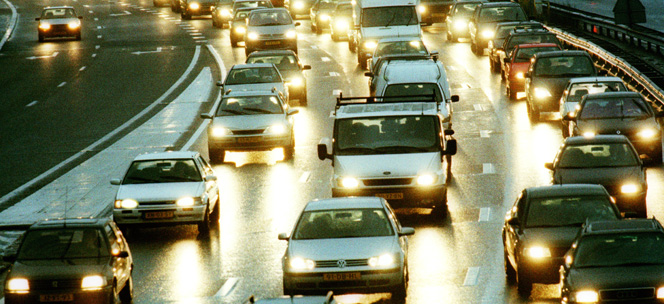UP Express Ticket Price Strategy Reveals Metrolinx Lack of Strategic Vision

This article was previously published in the Globe and Mail
What a twist of fate that Uber Chief Advisor David Plouffe was in Toronto delivering a speech about the ride-sharing company the same morning the news broke that Toronto’s $456 million UP Express train between Union Station and the Toronto Pearson airport is running 90 per cent empty.
The new multi-million dollar taxpayer subsidized train that opened this June has seen its ridership plummet a stunning 23 per cent since the service opened. The UP Express is serving only 16 people on each of their 173 seat trains, for a mere 2,500 people per day. If this pace keeps up, by the train’s 1 year anniversary, only 912,500 travellers will have been served, at a $68 million annual operating cost.
In contrast, UberX launched one year ago in Toronto, and has already made 4.4 million trips. The company, shockingly, also manages to make money and provide a service that people want.
Tickets for the UP Express are $27.50 for a single ride from Union. For a family the cost is $55 each way, for a $110 round trip from Union. The UberX fare-splitting option allows travellers on their way to the airport together to divide the price of the trip amongst themselves, significantly reducing the cost. There is obviously no such fare-splitting option with the UP Express, even though the Metrolinx Air Rail Link Study on Discrete Choice found that only four in 10 Pearson passengers travel alone.
The same study also found that price is the single most important factor influencing how travellers get to Pearson, with an overwhelming 73 per cent of respondents listing it as the most important factor. Which begs the question as to how Metrolinx arrived at the $27.50 price tag?
The exact reasoning remains unclear. Metrolinx did release some reports, but redacted details about the ticket pricing scheme, including their study on the maximum one-way fare travellers would be willing to pay. Purportedly, this information was redacted on the basis that it is commercially sensitive and could be used by competitors.
As a newsflash to city planners, that competition has already arrived, and doesn’t need the Metrolinx data to provide a better service. While the UP Express Fare Strategy contains a chart comparing the price of a Limo ($70), Taxi ($60), a now defunct private bus service ($20), the GO bus ($8), and the TTC ($3), there is no mention of ridesharing services like UberX. In fact, there is no mention in any of Metrolinx strategic planning documents of any ride sharing service.
UberX does cost a little more than $27.50, with a rush hour fare estimate of $34 from Union to Pearson. But the key difference, of course, is that you ride in a private car that picks you up at your house, and you don’t need to lug your bags onto the TTC and through Union Station. Indeed, while cost was the first most important consideration among passengers, the second most important factor was convenience. That’s precisely what UberX is banking that travellers are willing to spend an extra $6.50 on. And if you’re one of the six in 10 travelers that don’t travel alone you can go Dutch and split that $34 with one, two or three other passengers.
While your Uber driver won’t come with all the cute branding, including retro costumes complete with hats, that Metrolinx paid branding experts Winkreative $4.5 million to develop, it will pick you up at your door.
Mr. Plouffe’s remarks on Wednesday focused on how Uber, taxis, and public transportation can exist together and create more options for a population that increasingly wants to live in urban centres. He remarked on how Uber is filling a clearly unmet transportation need in cities, perhaps best demonstrated by how the UP Express is currently priced and designed. Right now the rules at Pearson airport mean that UberX may drop off passengers, but cannot pick them up. This rule should change in the future, because travelers are asking for it, and the UP Express is not filling this need.
All of this means it’s time for the city to rethink that vision, or at least the price of that vision. And the solution certainly is not to eliminate the ridesharing service that the public clearly prefers. Toronto city council will be voting on a package of rules dealing with ridesharing on September 30. Here’s to hoping that they have more strategic vision about transportation than Metrolinx does.